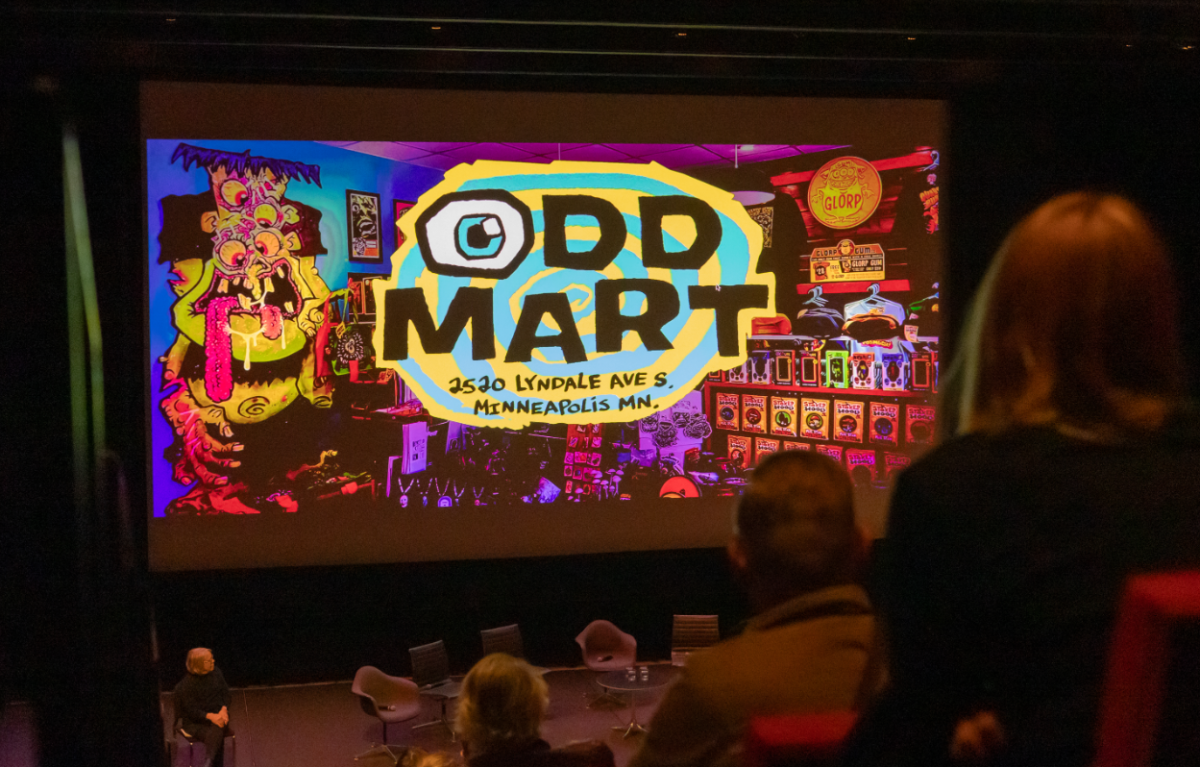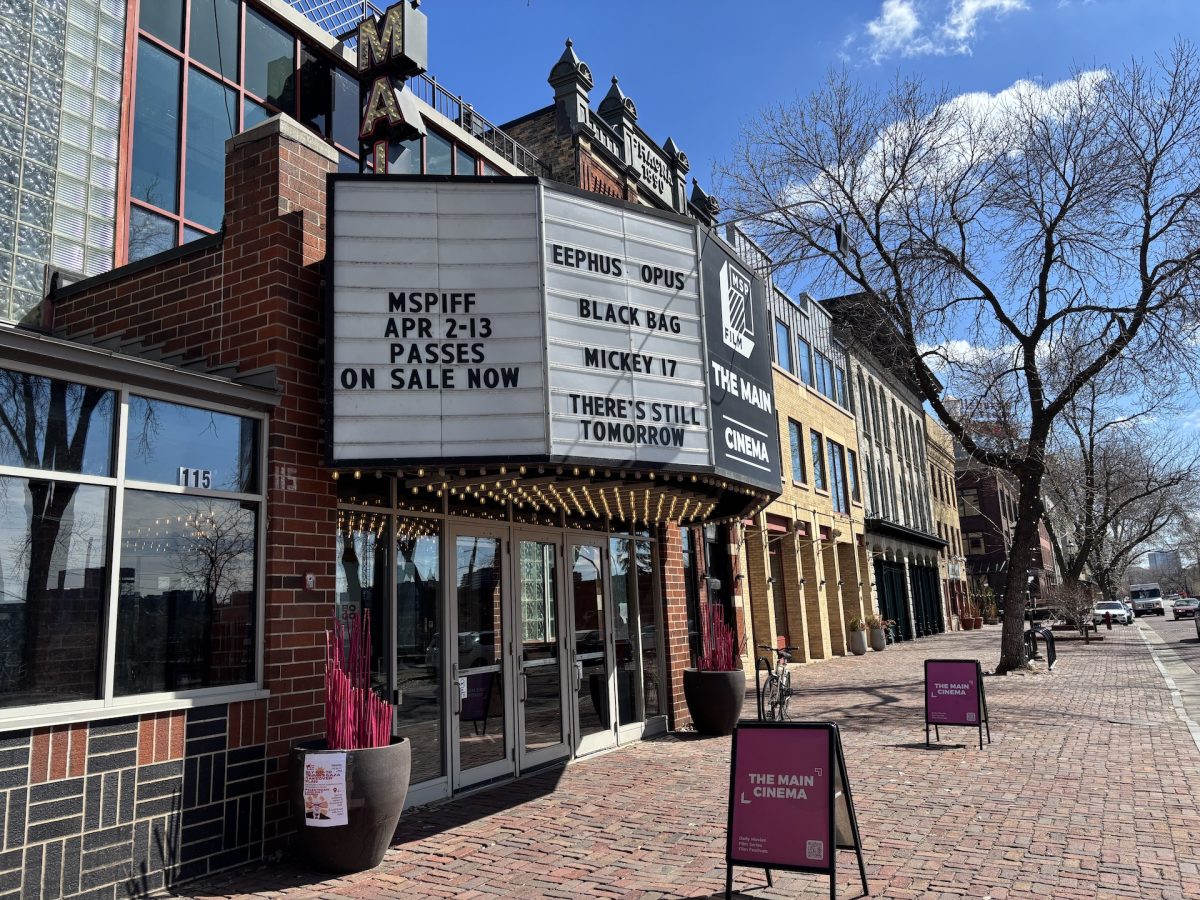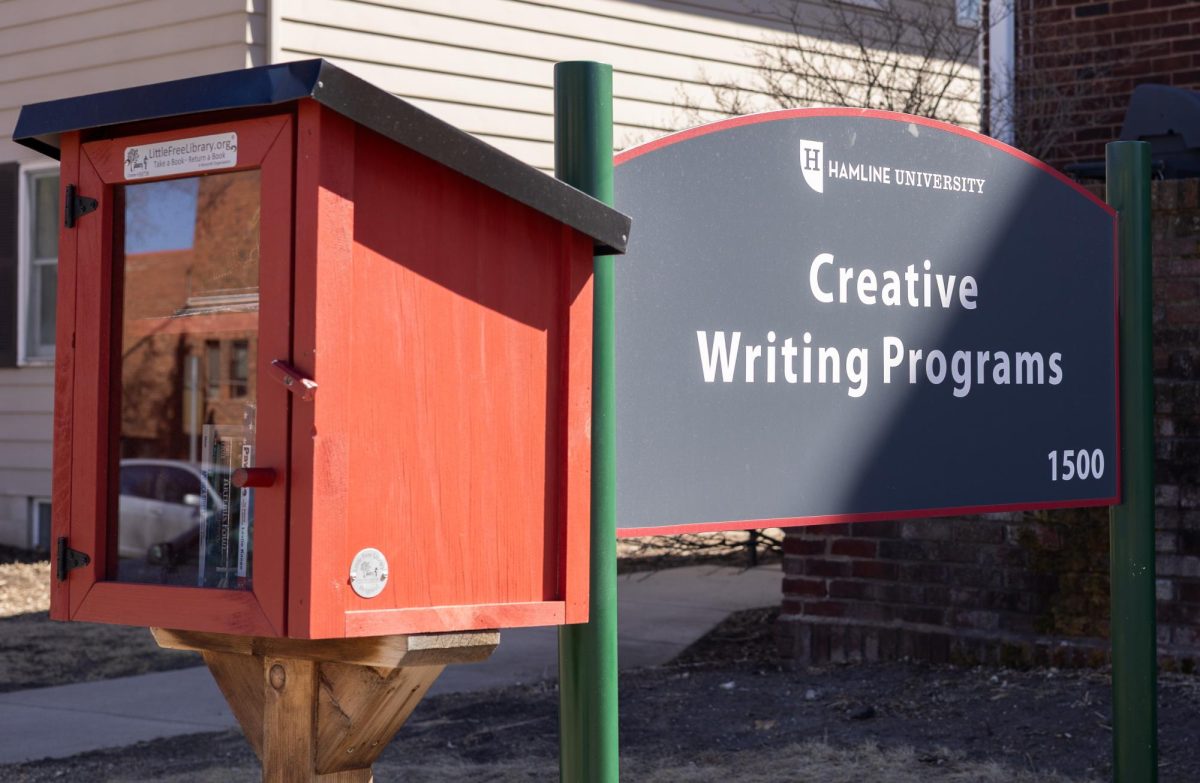As the Cold War began to thaw in the early 1980s, morally troubling stories surfaced in the mainstream press, causing great controversy among the aging American hippie set. Major record labels such as EMI, which had helped popularize anti-Vietnam war acts such as Joan Baez and Crosby, Stills, Nash & Young, had been investing profits in munitions plants and Agent Orange futures. In other words, treasured chestnuts like “Blowin’ in the Wind” and “Ohio” were unwittingly financing the same military-industrial complex they were attempting to fight.
The reaction from the music community was swift and resolute. Rock icons apologized profusely, feigning ignorance and vowing that such an ironic travesty of the public’s trust would never happen again. However, as the situation in Iraq drags on, history is repeating itself: A San Antonio, Texas-based media conglomerate called Clear Channel appears bent on making a buck off both sides.
Our constitutional right to a free press is a fundamental part of healthy democracy. Nevertheless, media critics have alleged that Clear Channel’s news department is falsely manufacturing the news with impunity. A week after Dixie Chicks lead singer Natalie Maines avowed during a live concert that she was embarrassed to be born in the same state George W. Bush called home, a large crowd gathered in Louisiana to watch a tractor smash an enormous collection of Dixie Chicks paraphernalia. The event was orchestrated by Cumulus Media, which owns 260 radio stations and is purportedly in the process of being bought out by Clear Channel.
Individual city offices of Clear Channel, which has acquired at least 1,235 radio stations, 39 television stations and 776,000 outdoor advertising displays worldwide, have also organized several high-profile pro-troops press events called “Rally For America.” These rallies, typically held in large markets such as Atlanta and Cleveland, are billed as nonpartisan, yet placards emblazoned with inflammatory phrases like “Bomb France Now!” suggest otherwise.
Antiwar activists have begun to question the motivations behind Clear Channel’s practice of financing private rallies and allowing their news departments to provide heavy coverage. Critics also allege that those same news departments are ignoring larger, albeit more peaceful, counter-protests nearby.
Channeling dark alliances
Many critics point out that Clear Channel only became a behemoth to reckon with after the deregulation-friendly Telecommunications Act of 1996 was passed. The company is currently being sued by several big-name artists for allegedly cutting airplay for bands who don’t tour with its SFX concert division. Politicians such as Sen. Russell Feingold, D-Wis., and Sen. John McCain, R-Ariz., are investigating the possibility of antitrust violations, such as monopoly and anticompetitive business practices. Many of these conflicts are due to be decided by the current head of the Federal Communications Commission Michael Powell. Powell’s father is U.S. Secretary of State Colin Powell.
Another possible motivation for Clear Channel’s alleged favoritism is its vice president, investment banker Tom Hicks. When Bush was Governor of Texas, Hicks was chairman of the University of Texas Investment Management Company, according to a recent New York Times expose. According to reporter Paul Krugman’s findings, the company’s current chairman, Lowry Mays, was on UTIMCO at the same time. Under Hick’s guidance, UTIMCO rearranged the majority of the school’s endowments to support companies with ties to the Republican Party and the Bush family. In 1998, Hicks bought the Texas Rangers in a lucrative deal that made the future president several million dollars richer.
The corporation was founded and is still chaired by Mays, whose business strategy is strikingly similar to Wal-Mart’s. Clear Channel has grown by buying out a competing station, cutting costs by sharing programming with other stations and selling the same ads at increased costs on radio, billboards and television.
Although Clear Channel’s rallies have appeared with great fanfare as far as away as Sacramento, Charleston and Richmond, their attendance numbers have failed to eclipse those of the antiwar movement. Nevertheless, Clear Channel boasts 100 million listeners daily and generates 20 percent of the radio industry’s $1.6 billion in 2001 revenue. This month, Fortune Magazine named them one of “America’s Most Admired Companies.”
A private memo that leaked shortly before the start of the bombing crows, “This is war! Always err on the side of overkill in a situation like this Ö the initial hours of coverage are critical.” And in the days following the Sept. 11 attacks, another memo strongly encouraged stations to drop from their play lists such “potentially sensitive” songs as “Dust In The Wind,” “Mack The Knife” and “99 Red Balloons.”
Clear Channel, which made $8.4 billion after taxes last year, also is responsible for right-of-the-political-dial voices such as Rush Limbaugh and Dr. Laura Schlessinger. Furthermore, the corporation manages such celebrities as MTV VJ Carson Daly, tennis star Andre Agassi and basketball legend Michael Jordan. Its SFX portion controls the lion’s share of the United States’ entertainment venues and works largely in tandem with Ticketmaster, the world’s largest ticket retailer. While Vivendi Universal Entertainment officially owns Ticketmaster, rumors persist that the financially strapped Vivendi might soon sell it off to Clear Channel.
While a Rolling Stones concert cost $8 in 1969, $350 barely gets you in the door today. Clear Channel blames the band’s old-fashioned sense of greed for the price hike, but big-business detractors point out that the average concert ticket price has risen over one-third under Clear Channel’s watch. Former Eagles front man Don Henley voiced similar concerns while volunteering to testify before Congress last year.
The underground fights back
It seems everyone from the Beastie Boys to Lenny Kravitz to R.E.M. has penned a ditty or two discouraging the invasion of Iraq, but you probably won’t find any of these catchy numbers on Clear Channel’s play logs anytime soon.
At a March 19, Clear Channel-sponsored show, venue handlers threatened to pull the plug on an Ani DiFranco performance if she allowed representatives of the antiwar group Not In Our Name and “Democracy Now!” radio host Amy Goodman to speak on stage, according to DiFranco’s publicist Tracy Mann. During the concert’s delay, the crowd began chanting, “We won’t be shocked and awed!”
DiFranco threatened to walk out of the sold-out New Jersey Performing Arts Center, but eventually the organizers buckled, allowing activists to throw leaflets defiantly into the cheering crowd while journalist Jeremy Scahill spoke about his recent trip to Baghdad.
“It is especially important that we disobey any attempts to silence us,” DiFranco told fans. “They tried to shut us down tonight, but once again we have proven that there is power in numbers. So it’s People: 1, Random Knuckleheads: 0.”
Thurston Moore, Sonic Youth’s guitarist, has also taken matters into his own hands by founding Protest Records, a site that exclusively hosts free mp3s of antiwar songs.
Country & western gets political
“Country music is a very patriotic format,” said Michael Cruise, program director for two Clear Channel stations in Houston, KKBQ and KTHT, in a recent New York Times interview. “I don’t want to come out on the wrong side of the issue.”
Last month, Tamara Saviano, a producer for Great American Country, learned that the hard way. According to Salon.com, Saviano received a jingoistic bulk e-mail, sent by country music star Charlie Daniels, in her personal e-mail account. “Hollywood is full of pitiful, hypocritical, idiotic, spoiled mugwumps,” Daniels wrote. “The war against Saddam Hussein is the war on terrorism Ö America is in imminent danger so you’re either for her or against her and there is no middle ground.” When Saviano angrily responded by calling his rant “anti-American,” Daniels’ handlers complained and she was fired the next morning. Saviano publicly compares her pink slip to a “new version of McCarthyism.”
The GAC cable network, which is owned by Jones Media Networks and reaches 15 million subscribers, has caught the eye of Clear Channel as well. Jones Media Network spokesperson Steven Shapiro says Saviano was fired not because of her political bent, but because she failed to make it clear that GAC as a whole wasn’t voicing her boycott suggestion for Daniels, a faithful and lucrative client of theirs.
“This is not about politics or freedom of speech,” Shapiro said in a prepared statement. “This is about a company employee who violated company policy, misrepresented company beliefs on company time and placed our company in jeopardy. There is no company more proud of being American than Great American Country.”
When the always-controversial outlaw country artist Steve Earle released the single “John Walker Blues” in 2002, The Wall Street Journal and The New York Post were among the many powerful voices demanding that the semi-sympathetic ode to the so-called “American Taliban” soldier be commercially banned indefinitely.
Maines has since apologized for her antiwar statement, writing on her band’s Web site, “As a concerned American citizen, I apologize to President Bush because my remark was disrespectful. I am a proud American.”
Backlash hits home
In Minneapolis alone, Clear Channel owns K102, KDWB, KOOL 108, Cities 97, WLOL, WFAN and KEXN. It also controls five stations in Rochester, three in Mankato and three in New Ulm. The exact number of billboards it owns in Minnesota is unclear, as Clear Channel no longer talks to the press directly, but instead deflects all questions to the New York-based public relations firm Brainerd Communicators, which specializes in crisis management.
It remains uncertain whether Clear Channel sponsored two patriotic rallies on the University campus two weeks ago. Officially organized by two University student groups, the Campus Republicans and Young Americans For Freedom, the rallies drew approximately 175 pro-war supporters and 75 counter-protesters from the Students Against War student group. All three organizations testify to having seen mysterious individuals handing out flyers indicating that Clear Channel was sponsoring the press conference.
Several Twin Cities artists have called for a boycott on all things Clear Channel, with similar movements springing up in Chicago and Madison. Credit here mainly rests with Tom Loftus, proprietor of Modern Radio Record Label. His petition has been signed by hundreds of local scenester bigwigs, including Dan Cote, manager of the Tree House Records store and founder of the Heart Of A Champion music label, as well as top-drawing bands like Malachi Constant, the Soviettes and Superhopper.
“I know there’s at least a dozen cities that have done similar things,” Malachi Constant drummer Alex McCown said. “However, no one’s expecting to put them out of business, but it’s still important.”
Cote said he had struggled for a while on how to deal with Clear Channel in his record store. “We didn’t want to support them from the start because we knew they were pure evil, but we also felt it was unfair to the individual bands to not let them hang their posters up.”
Sturgeon, lead vocalist and guitarist for the Soviettes, pointed out that Clear Channel also controls the booking for several high-profile, mid-size nightclubs such as The Quest, the 400 Bar and the Fine Line Cafe. “That was kind of the beginning of it,” Sturgeon said.
Kermit Carter, guitarist for Superhopper, said he still feels some good might come of the bloodshed and Clear Channel’s transparent complicity. “To educate people is to make everything a lot better,” Carter said. “The less we know, the faster and better big business runs.”
“I hope I reached out to some people,” Loftus said. “All I know is that anything would be better than Clear Channel.”
Nathan Hall welcomes comments at nhall@mndaily.com







